28 May 2024

Blood stem cells from healthy people carry major chromosomal alterations, a study in Nature Genetics by researchers at the Max Delbrück Center and the European Molecular Biology Laboratory (EMBL) finds. The discovery suggests that we are all genetic mosaics, which may contribute to ageing-related…
SCIENCE & TECHNOLOGY
14 December 2023
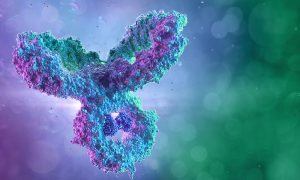
Former EMBL staff scientist founds a start-up – DenovAI – for broader, faster and cheaper antibody discovery using advanced machine learning and computational biophysics.
SCIENCE & TECHNOLOGY
2023
sciencescience-technology
22 March 2023
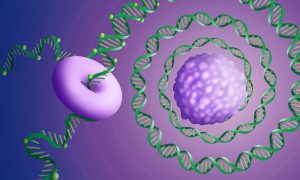
Using Oxford Nanopore long-read sequencing, EMBL scientists sequenced a primary childhood brain tumour known as a medulloblastoma, uncovering a novel complex mutation pattern.
6 May 2022
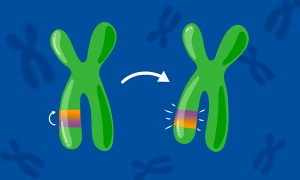
Researchers at EMBL Heidelberg found that inversions in the human genome are more common than previously thought, which impacts our understanding of certain genetic diseases.
SCIENCE & TECHNOLOGY
2022
sciencescience-technology
25 February 2021
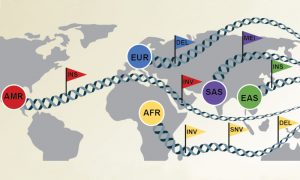
A collaboration including EMBL scientists has created the most diverse set of reference human genomes ever assembled.
SCIENCE & TECHNOLOGY
2021
sciencescience-technology
16 July 2020

Three changes in senior staff positions have been confirmed at EMBL today. Jessica Vamathevan becomes Head of Strategy, Jan Korbel becomes Head of Data Science for EMBL Heidelberg, and Nassos Typas becomes Senior Scientist.
EMBL ANNOUNCEMENTSLAB MATTERS
2020
embl-announcementslab-matters
30 June 2020
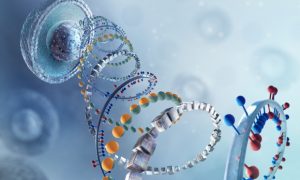
A national consortium including EMBL and the DKFZ is set to launch the German Human Genome–Phenome Archive, creating an invaluable bridge between fundamental biomedical research and applied healthcare.
CONNECTIONSLAB MATTERS
2020
connectionslab-matters
22 June 2020
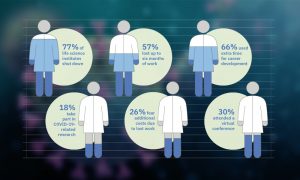
Jan Korbel and Oliver Stegle have performed a survey of fellow life scientists to learn how the current crisis, with partial or complete institutional shutdowns, is affecting their work.
LAB MATTERSSCIENCE & TECHNOLOGY
2020
lab-mattersscience-technology
13 May 2020

EMBL scientists will contribute to the new German COVID-19 OMICS Initiative to study the biological mechanisms contributing to coronavirus infections. EMBL group leaders Jan Korbel and Oliver Stegle, who is also affiliated with the DKFZ Heidelberg, will coordinate the set-up of IT infrastructures…
SCIENCE & TECHNOLOGY
2020
sciencescience-technology
1 April 2020

The causes of 40 percent of all cases of certain medulloblastoma – dangerous brain tumours affecting children – are hereditary. These are the findings of a recent genetic analysis carried out by scientists from EMBL and numerous colleagues around the world.
SCIENCE & TECHNOLOGY
2020
sciencescience-technology
5 February 2020
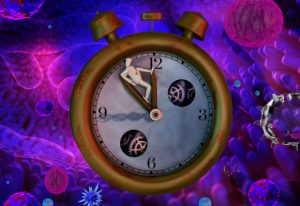
EMBL co-leads most comprehensive study of genetic causes of cancer
SCIENCE & TECHNOLOGY
2020
sciencescience-technology
5 February 2020

Scientists from EMBL present a tool for large-scale analysis of genomic data with cloud computing. Main advantages of the new tool, called Butler, are continuous system monitoring and its ability to self-heal in case of failure, allowing for 43% more efficient data processing than previous…
SCIENCE & TECHNOLOGY
2020
sciencescience-technology
5 February 2020

Using the data from the Pan-Cancer project EMBL scientists describe how our genetic background influences cancer development.
SCIENCE & TECHNOLOGY
2020
sciencescience-technology
23 December 2019

Researchers have developed a cheaper and faster method to check for genetic differences in individual cells
SCIENCE & TECHNOLOGY
2019
sciencescience-technology
15 July 2019

Does rearranging chromosomes affect their function? EMBL scientists reveal uncoupling of 3D chromatin organisation and gene expression.
SCIENCE & TECHNOLOGY
2019
sciencescience-technology
16 April 2019
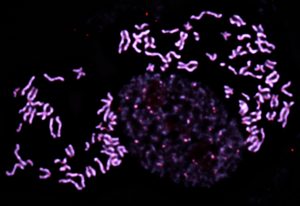
Thorough characterisation of structural variants in human genomes
SCIENCE & TECHNOLOGY
2019
sciencescience-technology
10 December 2018

Cancer researchers have developed a computer model to predict the course of disease for prostate cancer
SCIENCE & TECHNOLOGY
2018
sciencescience-technology
23 May 2018

EMBL group leader Jan Korbel reflects on his scientific origins and current research
SCIENCE & TECHNOLOGY
2018
sciencescience-technology
10 May 2018
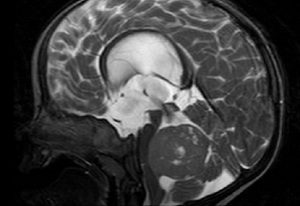
Researchers identify genes that can cause brain tumours in children and other cancers later in life
SCIENCE & TECHNOLOGY
2018
sciencescience-technology
29 August 2016
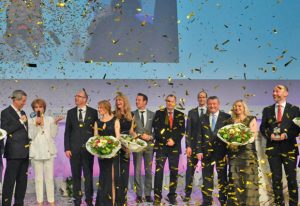
EMBL scientists regularly receive prestigious awards – meet the latest honourees.
EMBL ANNOUNCEMENTSLAB MATTERS
2016
embl-announcementslab-matters
24 November 2015
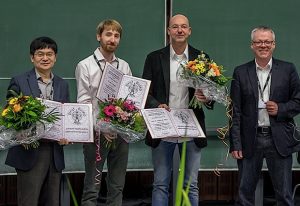
EMBL scientists regularly receive prestigious awards – meet the latest honourees.
EMBL ANNOUNCEMENTSLAB MATTERS
2015
embl-announcementslab-matters
9 July 2015

Jan Korbel and colleagues publish commentary on risks and rewards of genome cloud computing.
SCIENCE & TECHNOLOGY
2015
sciencescience-technology
25 June 2014
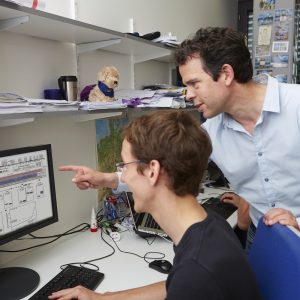
Enabling neighbours: intact genes can cause cancer when placed near "enhancing" regions of DNA
SCIENCE & TECHNOLOGY
2014
sciencescience-technology
2 February 2011
A detailed analysis of data from 185 human genomes sequenced in the course of the 1000 Genomes Project, by scientists at the European Molecular Biology Laboratory (EMBL) in Heidelberg, Germany, in collaboration with researchers at the Wellcome Trust Sanger Institute in Cambridge, UK, as well as the…
SCIENCE & TECHNOLOGY
2011
sciencescience-technology
27 October 2010
The 1000 Genomes Project, a major international collaboration to build a detailed map of human genetic variation, has completed its pilot phase. The results are now published in the journal Nature and freely available through the European Molecular Biology Laboratory’s European Bioinformatics…
SCIENCE & TECHNOLOGY
2010
sciencescience-technology
18 March 2010
Once the human genome was sequenced in 2001, the hunt was on for the genes that make each of us unique. But scientists at the European Molecular Biology Laboratory (EMBL) in Heidelberg, Germany, and Yale and Stanford Universities in the USA, have found that we differ from each other mainly because…
SCIENCE & TECHNOLOGY
2010
sciencescience-technology
No results found




















